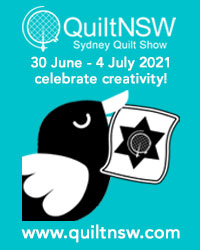The alarm clock, darkness, a warm scarf because before dawn in April is chill air, and it's been damp, rainy this week. Scramble into the clothes prepared last night and drive to the local war memorial. More cars parked in the carpark and along the road than you ever see at any other time of year, and certainly not before 6 in the morning.
A defence forces honour guard, a catafalque guard, the utter stillness of each of the ones in uniform. The stooped, grey-haired man who moves around the edges of the growing crowd to give us the sheets with the order of service, the words of the hymns and prayers and sacred texts of this one day of the year. He wears his medals and is still, in this way, serving.
In 1915, Australian and New Zealand forces were part of the attack on Gallipoli - a costly, heroic failure that has made ANZAC Day, 25 April, an unambiguous national day with a different, deeper resonance than Australia Day in January.
Dawn services - large ones in cities, smaller ones in towns and villages across the country, and across the world where Australians may be - are an integral part of this day. In the suburban area where I live, it's a gathering that draws many people into a quiet, respectful crowd, single people, couples, families, small children held by their parents, babies bundled against the cold and held close.
It begins at 6am in the half-light. The flags at full mast, the local concert band leading us in singing "Abide With Me", the voices quiet, almost reedy, not a rousing chorus, but a union in music, unity expressed. We sing, bow our heads for prayer, then listen to a member of the local clergy, who quotes from Les Carlyon's magnificent history of Gallipoli, prose that puts you there in sight and sound and smell and hearing, amid the heat and flies and the scent of thyme, the lice you hoped would drown when you swam on the beaches, the tumbled, twisted, irretrievable bodies of no-man's land, the newspaper pages blowing across this landscape from trench to trench, the bugles sounding advances, retreats.
We sing "God Save the Queen" and quietly repeat, at the end of the ode, "Lest we forget", a murmur that binds the crowd in common purpose, the reason we're here, as the dawn light comes across the sky, even on a grey morning such as this one.
The bugler sounds the Last Post, the flags are lowered to half mast and the silence is utter, even with such a crowd, so many people. Reveille sounds, and there is a shifting and settling, and the voices unite to sing "Advance Australia Fair".
And we all return to our own lives for another year.
Except this year was a double. My father was marching in a morning ceremony. Theirs isn't a large village, and the small group of marchers, less than a dozen of them, came around the oval/cricket ground, followed at a respectful distance by a large group of local school children and other people. Leading them, uniformed Lancers on horseback.
It was still grey, and thinking of rain. The ground was muddy, and among the crowd were raincoats, and wellington boots (gumboots), and had furled umbrellas at the ready. Not a large village, but a very respectable crowd. We sang a hymn, and listened to a medalled older man talk about the dreadful, brave roulette of Bomber Command. Wreaths laid, and the ceremony over, the village hall filled with people eating morning tea, home made sandwiches and cupcakes and Anzac biscuits.
On ANZAC Day, I think of my father and uncles, who are still with us, all of whom were in the defence forces during World War II, and my Uncle Willie, who was a pilot who was lost over France in that war. The first time, he came back, smuggled by the resistance. The second time, he didn't.
Lest we forget.
The saluting soldier in the top left photo, turned, at the end of the dawn service, into the crowd and was clutched by his toddler child, who reached over from his mother's arms to his father's, hugged him and then sat up to gently play with the medals pinned on his father's uniformed chest. It was a quiet moment in the crowd, but emblematic of what war is about: duty and family.
The RSL had a proposal, this year, that only returned soldiers should march within the main groups, with relatives wearing medals, and other non-soldiers, at the end of the march. I'm so glad they didn't enforce this. The village march here was short, and the soldiers marched alone, but in the city marches across the country, it's heartwarming, and moving, and somehow very right to see the people marching who are either side by side with their father or grandmother, or marching wearing medals to stand there for someone who can no longer march, or is no longer here to march. Sometimes they carry photos. of the soldiers in whose place they have come. And that is the future, so the medals are aired, the memories refreshed, thanks regiven, year by year, onward, always.
Lest we forget.
Subscribe to:
Post Comments (Atom)








2 comments:
Thank you Ruth.
I was so touched to read this. In our country, The United States of America, it seems we too often DO forget. We send our best and bravest off to fight and then dishonor them if they are fortunate enough to return. I'm glad Australia honors hers.
Post a Comment